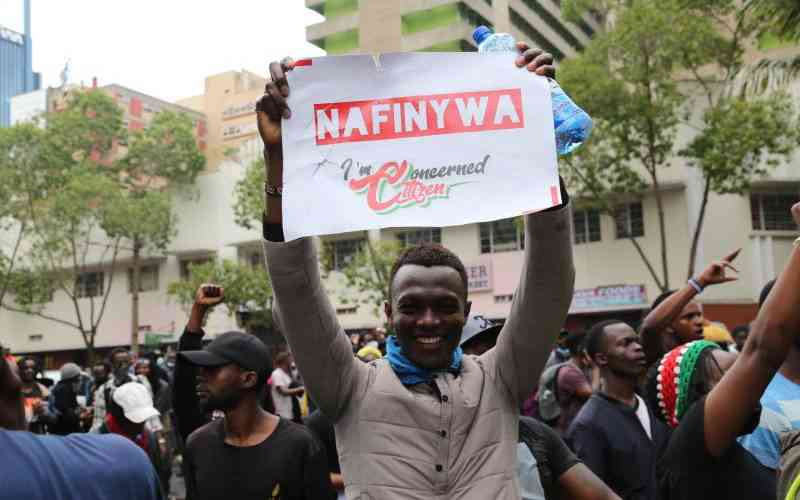Next week, on August 12, will be the International Youth Day, a moment of reflection when the world acknowledges the vital role young people play as agents of change.
Across Kenya and much of Africa, a generation is stepping forward, clear in its demands, bold in its vision, and determined to shape the future on its own terms.
Young people are organising in their communities, building businesses, conducting leadership and governance forums, and creating pathways for their peers. They bring with them energy, clarity, and a deep understanding of their challenges.
Follow The Standard
channel
on WhatsApp
For too long, youth development efforts have struggled to reach those furthest from formal opportunity. Too many programmes are designed in boardrooms, far from the informal settlements, rural wards, and border counties where unmet need is greatest. This distance, in geography and in lived experience, is a key reason why so many initiatives fail to resonate.
While all youth face barriers to opportunity, these systems are especially exclusionary for young women, refugees, and persons with disabilities. The very structures that leave youth behind are often harsher for those navigating compounding forms of marginalisation.
Without deliberate inclusion and leadership from these communities, development efforts risk deepening inequality. That is why it is critical to build with, not just around, their lived experience, ensuring that programmes reflect their realities, aspirations, and the wisdom they already hold.
Their new call for ‘nothing for us, without us’ offers a path forward. It reminds us that lasting solutions come not from delivering services to youth, but from building power with them. Across Kenya, this is already happening. Young people are organising peace dialogues in historically divided counties.
They are facilitating community forums, launching cooperatives, and building networks of peer support and economic inclusion. These efforts often begin with few resources but grow quickly, because they are grounded in trust, relevance, and the urgency of lived experience.
Take, for example, the Youth Voice Empowerment (YVE) initiative led by the Shinning Hope for Communities (Shofco) in partnership with the Mastercard Foundation, which has established youth-led platforms in hundreds of informal settlements and underserved counties.
Through YVE, youth are participating in community decisions, shaping agendas, influencing policy, and opening pathways for livelihoods and leadership where few existed before. We have seen how peer-led design, consistent community feedback, and embedded local governance create systems that are responsive and resilient.
Our young people are the drivers of their own development. Their work doesn’t wait for formal invitations. It grows from need, connection, and courage.
This kind of bottom-up infrastructure is being recognised as essential. Mastercard Foundation’s commitment to enabling 30 million young people across Africa access dignified work is grounded in a growing recognition that systems like Shofco built with, by, and for youth offer the most scalable and impactful path forward.
The path ahead requires more than goodwill. It calls for real shifts in how programmes are conceived, funded, and measured. It means recognising that the most sustainable outcomes are often those built from the bottom up. This International Youth Day is a moment. We can feel the change stirring.
-The writer is Programme Director at Shofco
Follow The Standard
channel
on WhatsApp
By John Odero
